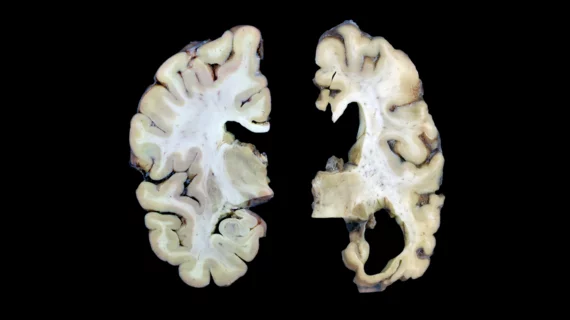New study offers clues for understanding Alzheimer’s disease
A Northwestern Medicine study published in Cell found that the cerebrospinal fluid (CSF) immune system showed key differences in individuals with cognitive impairment, such as Alzheimer’s disease, when compared with individuals with normally-functioning brains.
Specifically, the researchers noted that older individuals—even healthy ones—experienced genetic changes that made CSF immune cells more activated and inflamed than in their younger counterparts [1].
“The immune cells appear to be a little angry in older individuals,” says lead author David Gate, PhD, an assistant professor of neurology at Northwestern University’s Feinberg School of Medicine, in a news release. “We think this anger might make these cells less functional, resulting in dysregulation of the brain’s immune system.”
In the study, 14 participants with cognitive impairment—as determined by poor scores on memory tests—researchers also discovered the existence of inflamed T-cells with an overabundance of CXCR6 receptors cloning themselves and flowing into the CSF and the brain. The receptors are designed to pick up signals from the brain’s microglia cells to enter the brain, and their excess highlighted a potential cause for concern.
“It could be [that] the degenerating brain activates these cells and causes them to clone themselves and flow to the brain,” Gate says. “They do not belong there, and we are trying to understand whether they contribute to damage in the brain.”
While CSF is often best-known for its role in protecting the brain from harm in the case of a physical injury, these findings highlight the important role that the fluid surrounding the brain plays in providing immune protection. Thinking of CSF in this way offers an opportunity for further study to better understand its role in protecting against cognitive impairment, and potentially opens up opportunities for new paths to diagnosis treatment.
“We now have a glimpse into the brain’s immune system with healthy aging and neurodegeneration,” Gate says. “This immune reservoir could potentially be used to treat inflammation of the brain or be used as a diagnostic to determine the level of brain inflammation in individuals with dementia.”
